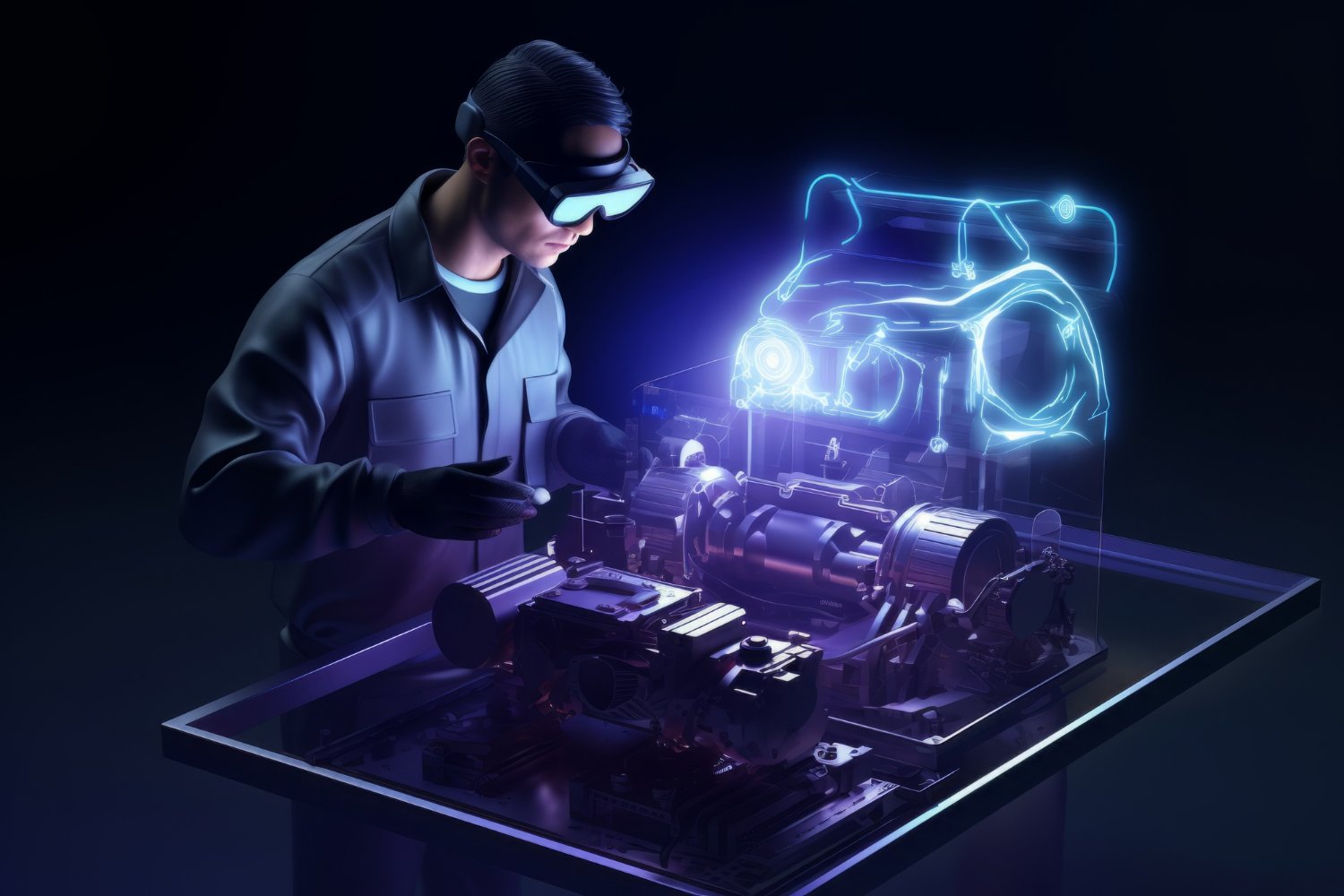Virtual reality (VR) is advancing quickly, transforming various industries with its immersive experiences. VR applicaties are expanding beyond gaming, creating new opportunities in education, healthcare, real estate, and more. This article explores some of the best future applications of VR and how they can benefit society.
Education and Training
Immersive Learning
Virtual reality can revolutionise education by creating immersive learning experiences. Students can explore historical sites, conduct virtual science experiments, or walk through complex biological structures, all from the classroom. Virtual reality headsets make these experiences feel real, enhancing understanding and retention.
For instance, medical students can use VR technology to simulate surgeries. This provides hands-on practice without the risks associated with real-life procedures. Similarly, engineering students can experiment with virtual structures, understanding their mechanics and potential failures.
Professional Training
VR applications are valuable for professional training. Industries such as aviation, the military, and manufacturing use virtual reality to train employees in a safe, controlled environment. Pilots can practice flying in different conditions, soldiers can simulate combat scenarios, and factory workers can learn to operate complex machinery.
This type of training reduces the risk of accidents and improves skills. It also allows for repeated practice, ensuring that trainees are well-prepared for real-world tasks.
Healthcare
Virtual Therapy
VR is becoming a powerful tool in healthcare, especially in therapy. Virtual reality environments can help treat conditions like PTSD, anxiety, and phobias. Patients can confront their fears in a controlled, virtual environment, gradually reducing their anxiety.
For example, a person with a fear of heights can use a virtual reality headset to experience heights safely. Over time, this exposure therapy can help them overcome their fear.
Pain Management
Virtual reality technology is also being used for pain management. By immersing patients in a virtual world, VR can distract them from pain. This is particularly useful during painful procedures or for chronic pain management. The immersive nature of VR helps shift the patient’s focus away from the pain, providing relief.
Real Estate
Virtual Property Tours
Real estate is another industry benefiting from VR applications. Potential buyers can take virtual tours of properties from anywhere in the world. This saves time and resources, as there is no need to travel for initial viewings. Virtual reality headsets provide a realistic feel of the property, helping buyers make informed decisions.
Virtual Staging
Virtual reality can also help with property staging. Real estate agents can show furnished versions of empty homes, allowing buyers to visualise how the space can be used. This makes properties more appealing and can speed up the selling process.
Entertainment
VR Gaming
The gaming industry has been one of the earliest adopters of VR technology. Virtual reality in gaming provides an immersive experience that traditional gaming cannot match. Players can interact with the virtual world in real-time, making the experience more engaging.
VR headsets and controllers enhance the experience by providing tactile feedback. This makes actions in the game feel more real. As VR technology advances, we can expect even more sophisticated and immersive virtual reality video games.
Virtual Concerts and Events
Virtual reality is also transforming how we experience concerts and events. Artists and event organisers are using virtual reality to create virtual concerts, allowing fans to enjoy live performances from the comfort of their homes. This expands the audience reach and provides a unique, immersive experience.
Work and Collaboration
Virtual Meetings
With the rise of remote work, VR is becoming an essential tool for virtual meetings and collaboration. VR environments allow team members to meet in a virtual space, making remote interactions more engaging. This helps build stronger connections and improves communication.
Using virtual reality headsets, employees can participate in meetings, brainstorm sessions, and collaborative projects as if they were physically present. This reduces the sense of isolation that can come with remote work.
Virtual Workspaces
VR technology can create virtual workspaces where employees can interact with 3D models, virtual whiteboards, and other tools. This is particularly useful for industries like design and architecture, where visualising and manipulating objects in a 3D space can enhance creativity and productivity.
Tourism
Virtual Tours
The tourism industry is utilising virtual reality to offer virtual tours of destinations. Potential travellers can explore cities, historical sites, and natural wonders through a virtual reality headset. This helps them decide on their travel plans and provides a taste of what to expect.
Read our detailed article on EXPLORING VIRTUAL MUSEUMS AND THE DIGITAL PAST WITH AI AND AR & VR!
Accessibility
Virtual reality also makes tourism accessible to those who cannot travel due to physical limitations or financial constraints. People can experience the beauty of different places without leaving their homes, broadening their horizons and enriching their lives.
Retail
Virtual Shopping
Retailers are using VR to create virtual shopping experiences. Customers can explore virtual stores, browse products, and make purchases without leaving their homes. This combines the convenience of online shopping with the immersive experience of physical stores.
Product Visualisation
Virtual reality allows customers to visualise products in their intended environment. For example, they can see how furniture will look in their living room or how clothes will fit their body type. This enhances the shopping experience and reduces the likelihood of returns.
Sports
Virtual Training
Athletes are using VR for training and performance analysis. VR experience in athletic environments can simulate real-world scenarios, allowing athletes to practice and improve their skills. For example, a football player can practice different plays, and a golfer can perfect their swing in a virtual world.
Fan Engagement
VR is also enhancing the fan experience in sports. Fans can watch games from different angles, feel like they are on the field, or even participate in virtual meet-and-greets with their favourite athletes. This adds a new dimension to sports entertainment.
Manufacturing and Industry
Virtual Prototyping
Manufacturers use virtual reality for virtual prototyping. Engineers and designers can create and test virtual models of products before physical production begins. This speeds up the product development process and reduces costs.
Read all about COMPUTER VISION IN MANUFACTURING!
Training and Safety
VR is valuable for training employees in industrial settings. Workers can learn to operate machinery and handle dangerous materials in a safe, simulated environment. This improves safety and reduces the risk of accidents.
Military and Defense
Simulated Training
The military uses VR for simulated training exercises. Soldiers can experience combat scenarios, practice strategies, and improve their skills without the risks of real combat. This type of training enhances preparedness and effectiveness.
PTSD Treatment
VR is also used to treat PTSD in veterans. Virtual reality therapy helps them confront and process traumatic experiences in a controlled setting, aiding in their recovery and improving their quality of life.
Challenges of VR Adoption
While the future of VR is promising, there are challenges to widespread adoption. These include the high cost of VR headsets and equipment, technical limitations such as resolution and latency, and the need for robust content creation.
How TechnoLynx Can Help
TechnoLynx specialises in developing cutting-edge VR applications across various industries. Our team of experts can help you gain the incredible power of VR to transform your business.
-
Custom VR Solutions: We offer custom VR solutions tailored to your specific needs. Whether you need VR for training, marketing, or customer engagement, we can develop the right tools to help you succeed.
-
Expert Guidance: Our consultants have extensive experience in VR technology. We can guide you through every stage of VR adoption, from initial strategy development to full implementation. This ensures you make the most of VR’s benefits and avoid common pitfalls.
-
Training and Support: We provide comprehensive training programs to upskill your workforce. Our training covers VR tools, content creation techniques, and best practices for VR adoption. We also offer ongoing support to ensure your VR systems continue to deliver value.
-
Scalable Solutions: Our VR solutions are scalable, making them accessible to businesses of all sizes. We offer flexible pricing models to help you manage costs and maximise ROI. This enables you to benefit from VR technologies without straining your budget.
Conclusion
Virtual reality has a bright future with applications across education, healthcare, real estate, entertainment, and more. The benefits of VR include improved learning, enhanced customer experiences, and increased efficiency in various industries. However, challenges such as high costs and technical limitations need to be addressed.
TechnoLynx is here to help you navigate these challenges and make the most of VR’s benefits. Our custom VR solutions, expert guidance, and ongoing support can help you stay competitive in the evolving technological landscape.
Image credits: Freepik













